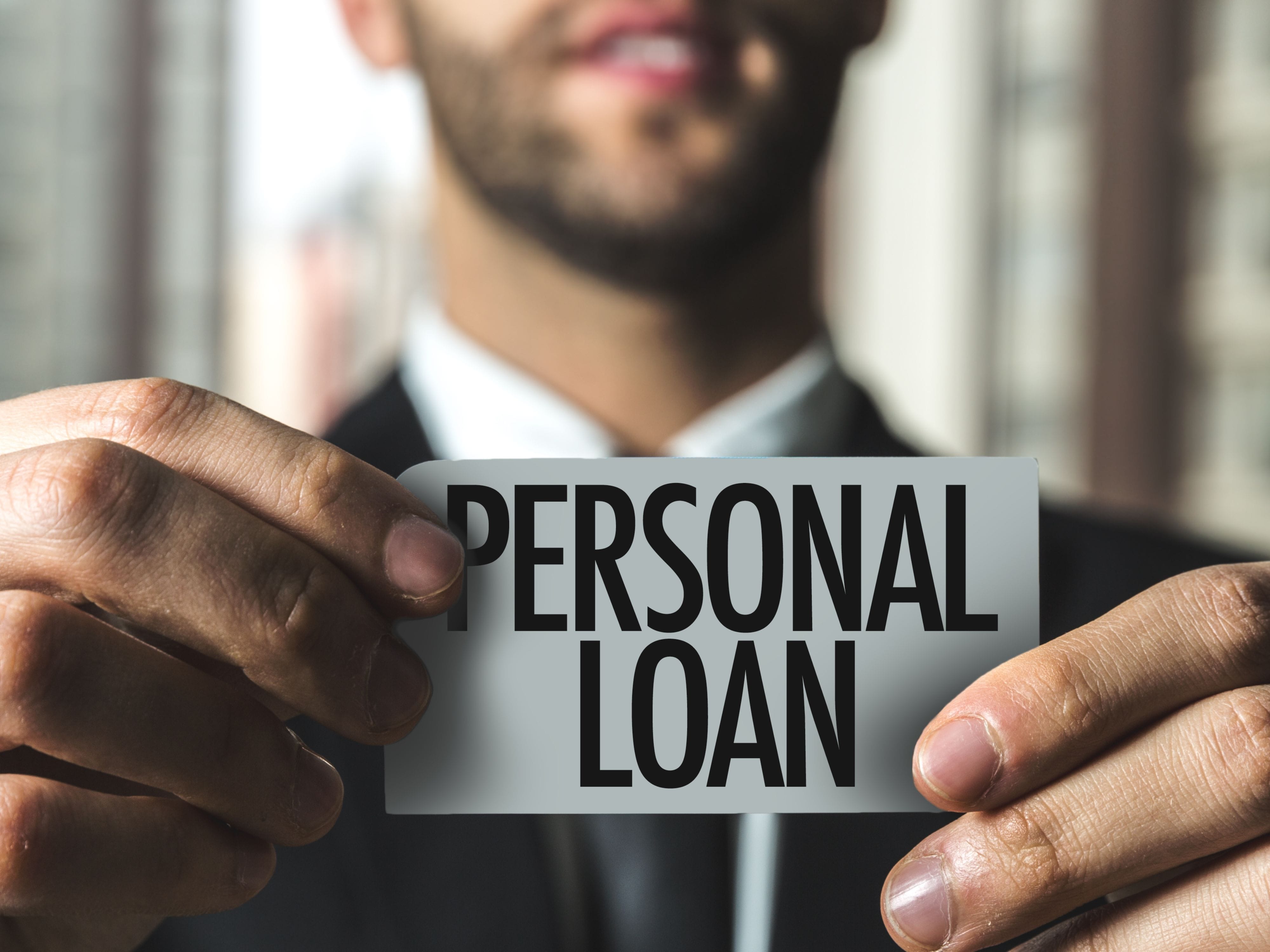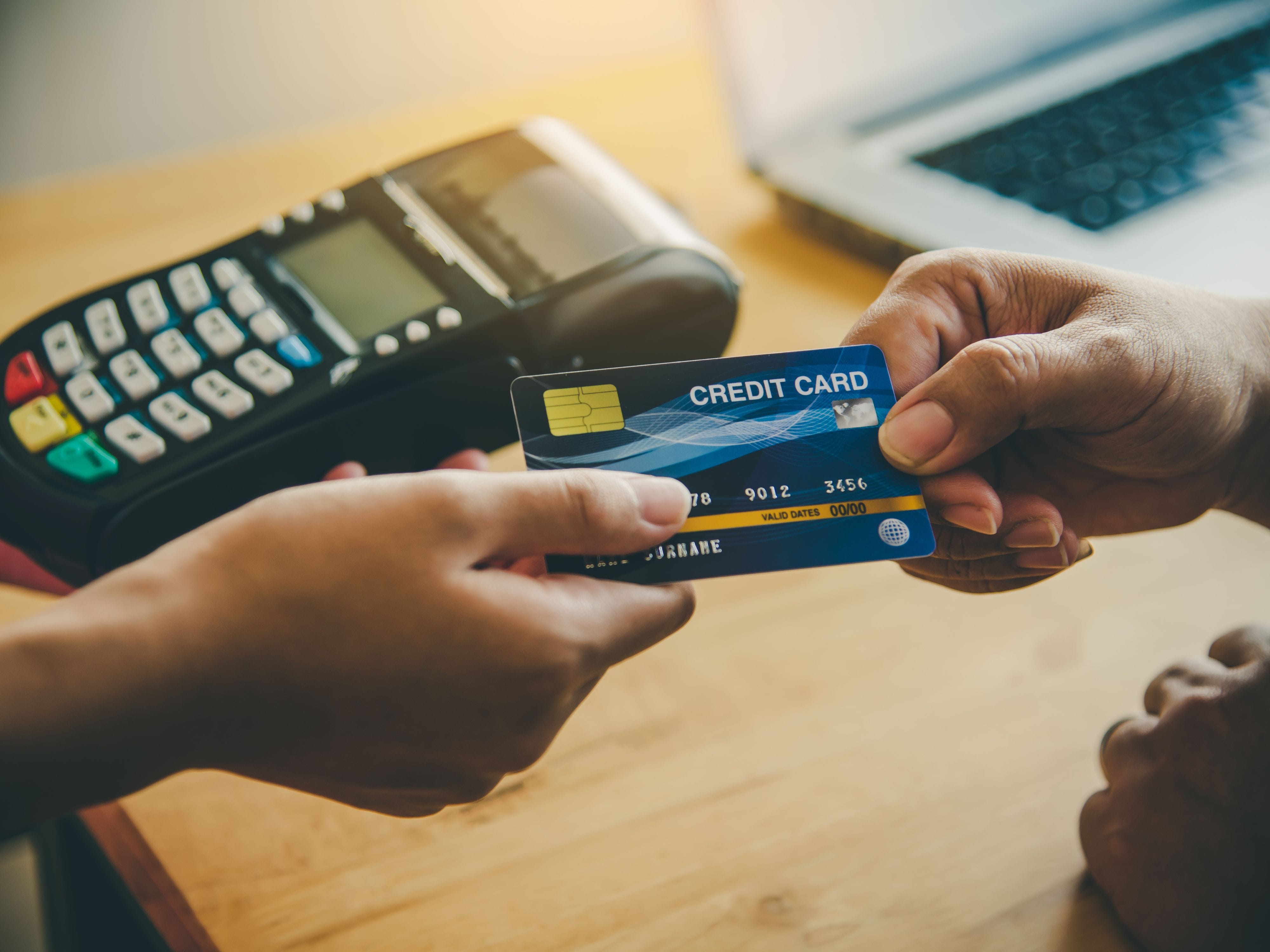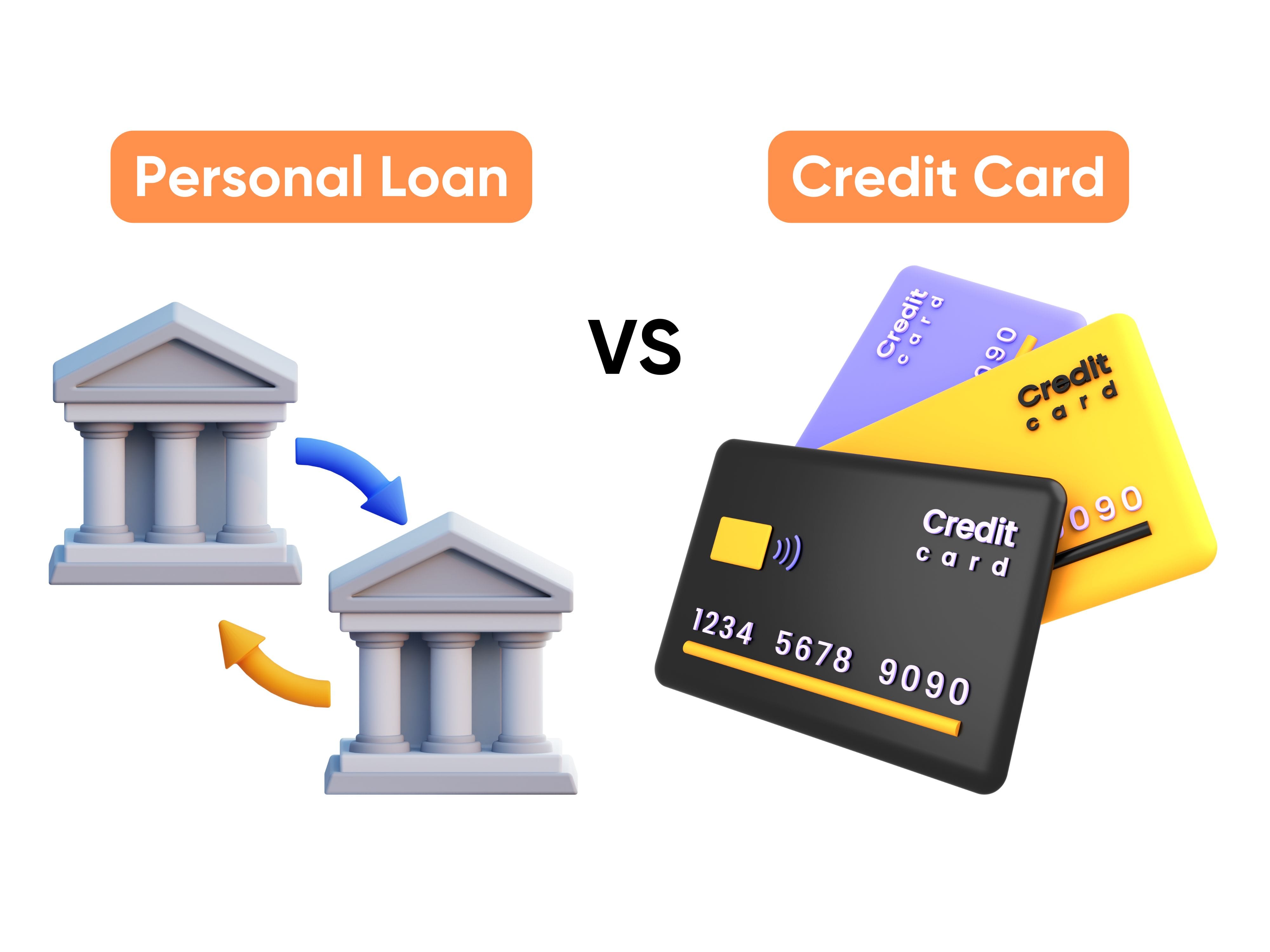Life has a way of throwing unexpected expenses our way—hospital bills, car repairs, or even a sudden trip.
And when your bank balance says, ‘aight, imma head out’. You have two options: a personal loan or a credit card.
But which one is better? Choosing the wrong one can cost you more than you bargained for. Let’s break it down in simple terms so you can make the right choice.
What is a Personal Loan?

A personal loan is a fixed amount of money borrowed from a bank or financial institution, which you repay in monthly instalments (EMIs) over a set period.
Unlike home or car loans, personal loans are unsecured, meaning you don’t need to pledge any collateral to get approved.
Key features of a personal loan:
1. Loan Amount: Typically ranges from ₹50,000 to ₹25 lakhs, depending on eligibility.
2. Interest Rate: Generally 10-24% per annum, lower than credit cards.
3. Repayment Period: This can be 1 to 5 years, making it easier for long-term planning.
4. Fixed EMIs: Your monthly payments remain the same throughout the loan tenure.
5. Approval Time: This can take a few days, as banks require income proof, credit checks, and documentation.
A personal loan is best for large, planned expenses like home renovation, wedding costs, or medical emergencies where a structured repayment plan is necessary.
What is a Credit Card?
A credit card is a revolving line of credit that allows you to borrow money up to a pre-approved limit and repay it either fully or partially every month.
It is one of the most convenient ways to handle short-term financial needs. However, if you don’t repay the full amount by the due date, interest is charged on the outstanding balance.

Key features of a credit card:
1. Credit Limit: Typically lower than personal loans, depending on income and credit score.
2. Interest Rate: 36-48% per annum if you don’t pay the full bill on time.
3. Interest-Free Period: Usually up to 45 days, meaning no interest if you clear the dues within this timeframe.
4. Flexibility: No fixed EMIs; you can pay the minimum amount due and carry forward the balance.
5. Perks & Rewards: Cashback, discounts, and travel benefits make credit cards attractive.
A credit card is ideal for smaller, short-term expenses like emergency travel bookings, medical tests, or last-minute bill payments, especially if you can clear the dues before interest kicks in.
Expert Opinion: In which situations should one opt for a personal loan, and when is a credit card loan a better choice? Answered by Akashdeep Garg, a certified finance professional “The choice between a personal loan and a credit card should align with your spending needs and repayment discipline: Personal Loan: 1. Best for Planned, Large Expenses: Whether it’s for a home renovation, a wedding, or debt consolidation, personal loans provide a lump sum with a fixed interest rate and predetermined repayment schedule. 2. Predictable Budgeting: With fixed EMIs over a set period, you can plan you finances without the uncertainty of fluctuating balances or interest ra 3. Structured Repayment: If you prefer a disciplined approach and don’t want to risk revolving debt, a personal loan offers a clear roadmap for repayment 4. Cash Flow: If 50% of your monthly cash flow i.e. income from salary etc is lower than the required loan amount, Personal loan is best suited for you as credit card spend will force you to pay the full amount at due date. In case of credit card, converting this amount to EMIs can be a costly affair due to upfront processing fee and higher rate of interest. Credit Card: 1. Ideal for Short-Term and Recurring Expenses: For everyday purchases or emergencies, credit cards offer immediate access to funds and the added benefit of rewards or cashback 2. Flexibility with Caution: They provide a revolving line of credit which is great for managing cash flow, but you must be vigilant—if you carry a balance interest rates can be significantly highe 3. Credit Building: Responsible use can improve your credit score, but overspending or late payments can quickly lead to a debt trap. In summary, Personal loans are best for large, planned expenses which your monthly income doesn’t allow you to pay the full amount in 30-45 days. However, credit cards are best used for small, discretionary or emergency spending or to avail card specific offers if you use it responsibly.” |
Personal Loan vs Credit Card: Key Differences

Now, let’s get into the real debate: which one actually works better? Both have their pros and cons, but the right choice depends on your situation. To make things clearer, let’s break it down.
Loan amount & repayment terms
Need a big amount for a wedding, home renovation, or unexpected hospital bill? A personal loan gives you a lump sum, which you repay in fixed EMIs over time. It's structured and predictable—no surprises! For planned purchases like gadgets or home appliances, no-cost EMI options can make things affordable without added interest.
More like a safety net for smaller, everyday expenses. You can swipe a credit card within your limit and repay at your convenience (try to repay the amount within the interest-free period)
Interest Rates & Charges
A personal loan comes with lower interest rates (10-24% per annum), making it the smarter choice if you need a large sum and a longer repayment period.
If you pay your credit card bill on time, it's all good! But if you don’t? Interest rates can shoot up to 30-45% per annum, and that’s when things get stressful.
Approval Process & Accessibility
Personal loans take time. Banks will check your credit score, income, and documents before giving approval. If you're in a hurry, this might not be your best bet.
If you already have a credit card, you can access funds instantly. There is no waiting, no paperwork. But if you're applying for a new one, it still takes a few days to get approved.
Impact on Credit Score
Personal loans, when repaid on time, improve your credit score due to structured repayment.
Credit cards, if misused (late payments, maxed-out limit), can hurt your credit score.
Flexibility & Usage
Credit cards let you borrow and repay as needed, giving you more flexibility.
Personal loans provide a one-time amount, making them better for large planned expenses.
Which One is Right For You?

Choosing between a personal loan and a credit card depends on three key factors: the urgency of the situation, your repayment ability, and your financial discipline. Let’s break it down further:
When a personal loan makes more sense
1. Big Money Moves: If your expenses are hefty (think hospital bills, home renovation, or a wedding), a personal loan is your best bet. It gives you a lump sum upfront, so you don’t have to scramble for funds.
2. You Like Predictability: With a personal loan, you get fixed EMIs—no surprises, no guessing games. If you’re someone who likes knowing exactly what’s going out of your account each month, this is the safer choice.
3. Lower Interest, Less Stress: Credit card interest can skyrocket if you don’t pay on time. A personal loan, on the other hand, has lower interest rates, making it a smarter option for long-term payments
4. You’re a Financial Planner, Not a Juggler: If you’re disciplined and can commit to regular EMIs without fail, a personal loan can actually help your credit score. But if missed payments are your weakness, proceed with caution.
When a Credit Card is the Smarter Pick
1. You Need Money Now: No waiting, no paperwork, if you already have a credit card, funds are instantly available. Perfect for those last-minute emergencies, like when your fridge decides to quit on you right before summer.
2. You Can Clear the Bill Fast: If you can repay within the interest-free period (usually 45 days), a credit card is basically a free loan. Use it, pay it off, and move on at no extra cost.
3. You Like Freedom & Flexibility: Unlike personal loans, credit cards don’t force you into fixed EMIs. You can borrow as needed and repay when it suits you (but don’t get too comfortable, interest charges aren’t forgiving!).
4. Perks, Cashback & Rewards: From travel miles to shopping discounts, credit cards come with extra benefits. If you use your card strategically, you can save money while spending money. It is a win-win!
The bottom line
If you need a big amount and structured repayment, go for a personal loan. If it’s a smaller, short-term emergency, a credit card is more convenient, but only if you can repay on time. The best option is the one that fits your financial situation and spending habits without causing long-term debt.
Choose Smart, Spend Smarter
Financial emergencies are unpredictable, but how you handle them can make all the difference. Don’t let stress force you into a hasty decision.
Weigh your options, check your repayment ability, and choose wisely. After all, paise kamaana mushkil hai, par sambhalna usse bhi mushkil.
Disclaimer: This information provided is intended for general informational purposes only. It is not a substitute for professional advice or guidance. For personalized recommendations or specific concerns, please consult a certified Financial Planner.




